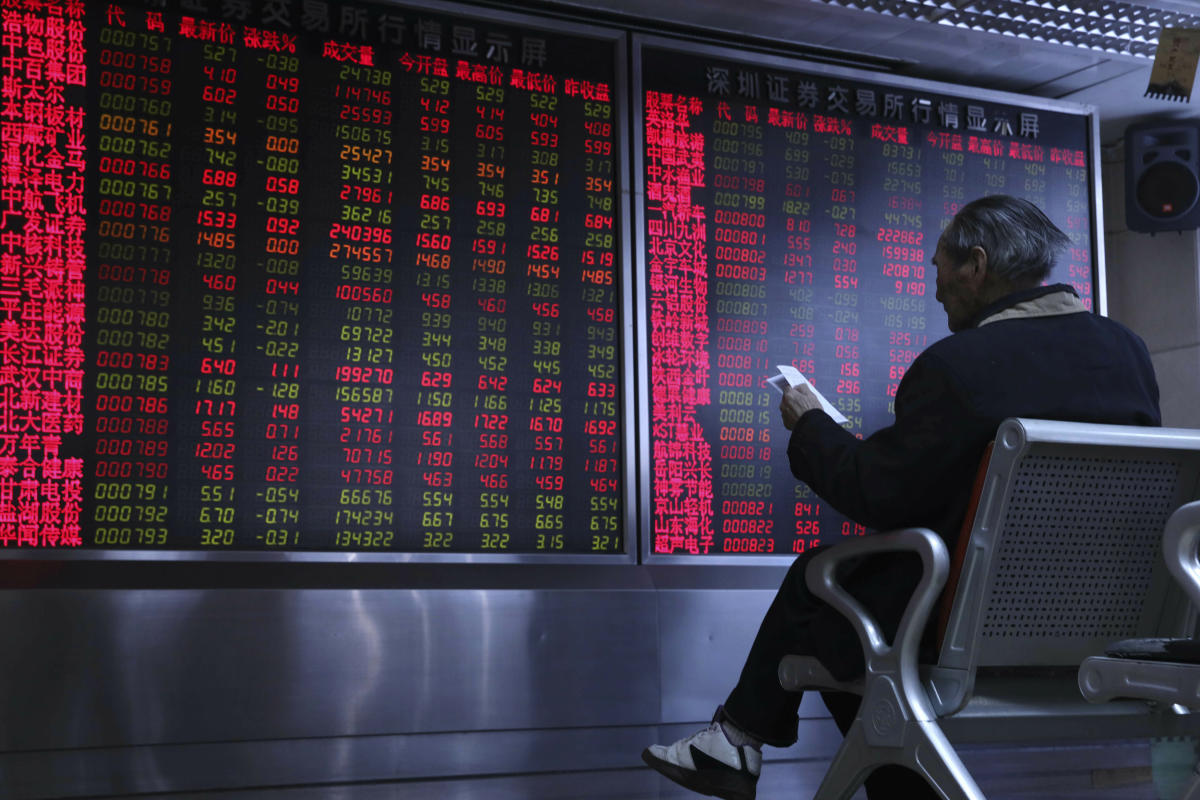
Asia experienced mixed results in stock markets on Thursday, following a modest gain on Wall Street that maintained a four-week winning streak. Notably, Japanese and U.S. markets were closed for holidays.
Oil prices declined by approximately $1 per barrel as OPEC postponed a meeting on production cuts until the next week. The oil cartel, focused on stabilizing crude oil markets through production cuts, is anticipated to extend these measures in response to a recent drop in oil prices from the summer peak of nearly $100 per barrel.
Hong Kong‘s Hang Seng reversed initial losses, rising by 0.5% to 17,818.25, while the Shanghai Composite index increased by 0.6% to 3,061.86. Markets in Greater China responded to regulatory interventions aimed at supporting the struggling property market. Shares of the troubled developer Country Garden surged by 16%, reportedly due to its inclusion on a list of real estate companies eligible for financing support. Sino-Ocean Group Holding saw a 27% increase in its shares.
Australia‘s S&P/ASX 200 declined by 0.6% to 7,029.20, and South Korea’s Kospi edged 0.1% higher to 2,514.96. Bangkok’s SET lost 1%, the Taiex in Taiwan was down 0.1%, and the Sensex in Mumbai opened up by 0.1%.
On Wednesday, the S&P 500 rose by 0.4% to 4,556.62, with the Dow increasing by 0.5% to 35,273.03, and the Nasdaq gaining 0.5% to 14,265.86. Trading activity was subdued ahead of the Thanksgiving holiday, with U.S. markets operating for only half a day on Friday.
Learn how to trade popular instruments with Top Forex and CFD brokers in Asia
Technology and communications services stocks were prominent in the S&P 500 gains, with Microsoft rising by 1.3% and Google parent Alphabet adding 1.1%. However, Broadcom slipped by 0.9% after announcing the expected completion of its $69 billion deal to acquire VMWare, following regulatory clearance.
A 0.9% drop in oil prices impacted energy companies, with Exxon Mobil falling by 0.4% and Halliburton dropping by 0.8%. Nvidia fell by 2.5%, despite surpassing analysts’ profit and revenue forecasts, as export restrictions to China affected the company.
Earnings reports continued to emerge, with Nordstrom, a department store operator, falling by 4.6% after revising its profit forecast for the year. Clothing retailer Guess slumped by 12.3% after cutting its financial forecast.
Treasury yields remained relatively stable, with the 10-year Treasury yield rising to 4.41% and the 2-year Treasury yield slipping to 4.88%.
A consumer sentiment survey by the University of Michigan indicated sustained confidence. The economy’s outlook, previously uncertain, has seen potential recession forecasts pushed to 2024 and softened. Inflation rates are easing, consumer spending remains robust, and there is optimism that the Federal Reserve may consider rate cuts in the near future.
In other developments, U.S. benchmark crude oil lost 67 cents to $76.43 per barrel, and Brent crude, the international pricing standard, gave up 84 cents to $81.12 per barrel in electronic trading on the New York Mercantile Exchange. The U.S. dollar slipped to 149.01 Japanese yen from 149.56 yen, while the euro rose to $1.0913 from $1.0889.
Subscribe for our newsletter
Get Forex brokers reviews, market insights, expert analytics and education material right into your inbox for free!